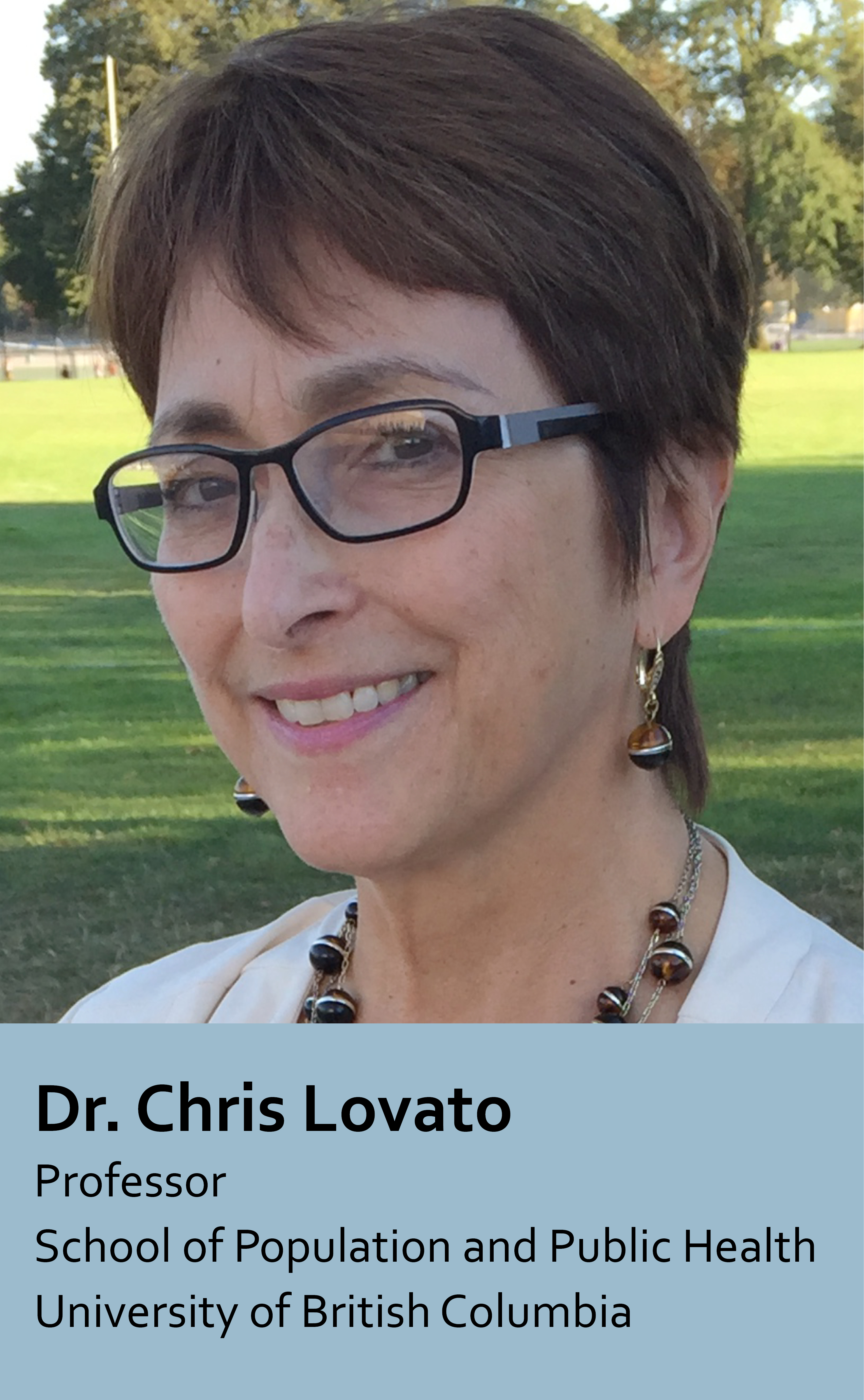Dr. Chris Lovato
More than Doctors: How Does an Undergrad Medical Program Benefit a Community?

Date: Wednesday, October 19, 2016
Time: 12:00pm to 1:30pm (feel free to bring a bagged lunch)
Locations:
- DHCC 2267
- IRC 305
- PHRM 3321
- MSB 107
- RJH CA 120
- KGH CAC 237
- NHSC 9-374
- Surrey Central City (Manning Room 4109)
Remote:
- Movi E, ID 30215
- VC Anywhere, user guide
Abstract
The primary goal of UBC’s regionally distributed medical education program, established in 2004, was to address geographic maldistribution and a lack of family physicians. There is early evidence that the program is accomplishing these goals and that, in and of itself, is a good news story. But there are also other interesting stories emerging from the regional sites—one of them is about perceptions of what happened in the community of Prince George when the Northern Medical Program was established.
Interviews were conducted (2005, 2007, & 2013) with Prince George community leaders from key sectors, including education, health, business/economics, politics, and the media. We found that the impact of the distributed program has reached well beyond students, physicians, and the direct provision of health care. It has also contributed to changes in other important aspects of the community related to the population’s health. In this rounds session I’ll share our approach to the study and findings. I’ll also discuss the implications of considering a systems perspective when conducting evaluative research.
Biography
Dr. Chris Lovato is a Professor in the School of Population & Public Health. She joined UBC in 1995 and was the founding Director of the Evaluation Studies Unit, Faculty of Medicine, from 2004 to 2015. Before joining UBC, she was a faculty member at the University of Texas Health Science Center-Houston and San Diego State University.
Her scholarship is focused on conducting health evaluation and research that informs decision-making. Over the years, her studies have inquired into the effectiveness of community health initiatives, health services programs, and medical education. Her current research uses a systems perspective to understand the way programs impact the larger system within which they operate. Most recently, this has included examining the impact of locating a medical school in the community of Prince George and the impact of a provincial program designed to engage physicians in decision-making that improves patient care and the working environment.
Accreditation:
The University of British Columbia Division of Continuing Professional Development (UBC CPD) is fully accredited by the Committee on Accreditation of Continuing Medical Education (CACME) to provide study credits for continuing medical education for physicians. This course has been reviewed and approved by the UBC Division of Continuing Professional Development. This Group Learning course meets the certification criteria of the College of Family Physicians of Canada and has been certified by UBC CPD for up to 1.5 Mainpro+ credits. This course is an Accredited Group Learning Activity eligible for up to 1.5 MOC Section 1 credits as defined by the Maintenance of Certification program of the Royal College of Physicians and Surgeons of Canada. Each physician should claim only those credits he/she actually spent in the activity.
